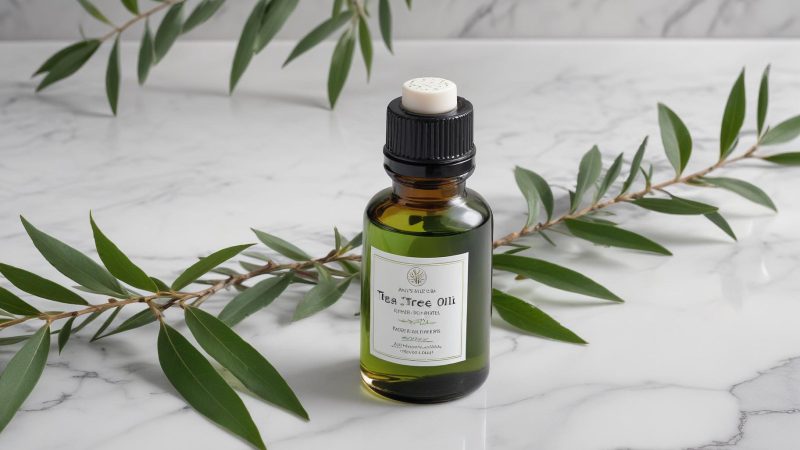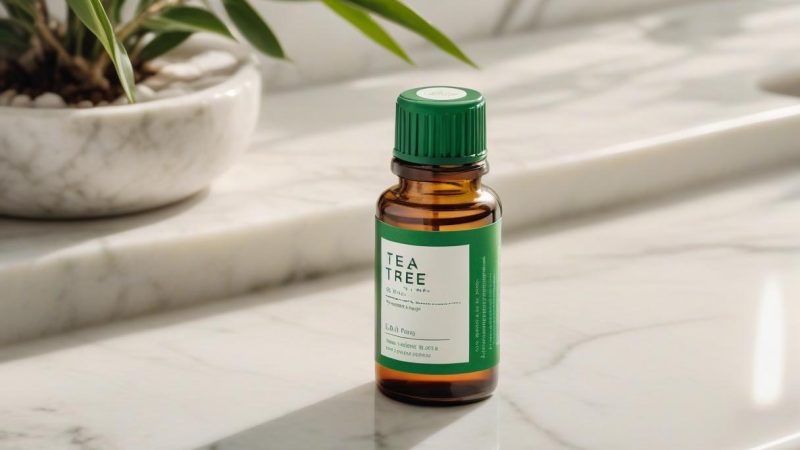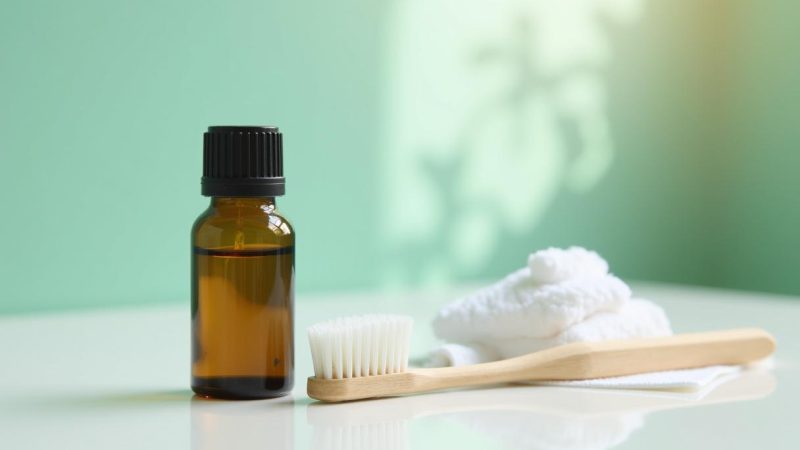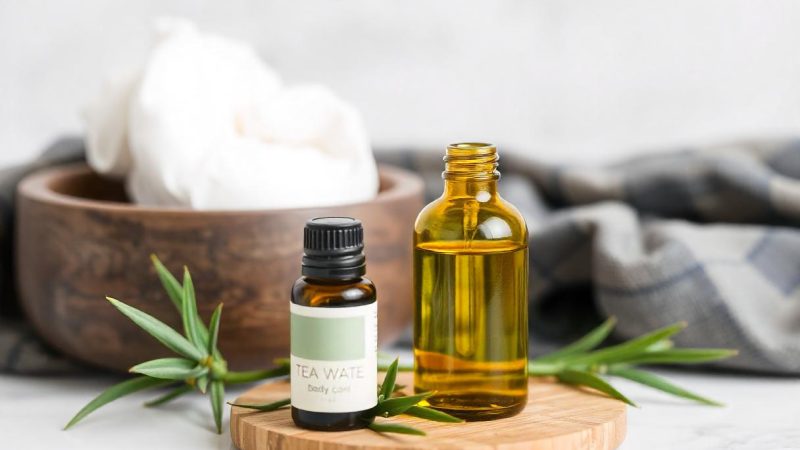Tea Tree Oil as a Chemical-Free Mouthwash: Benefits and How to Use It
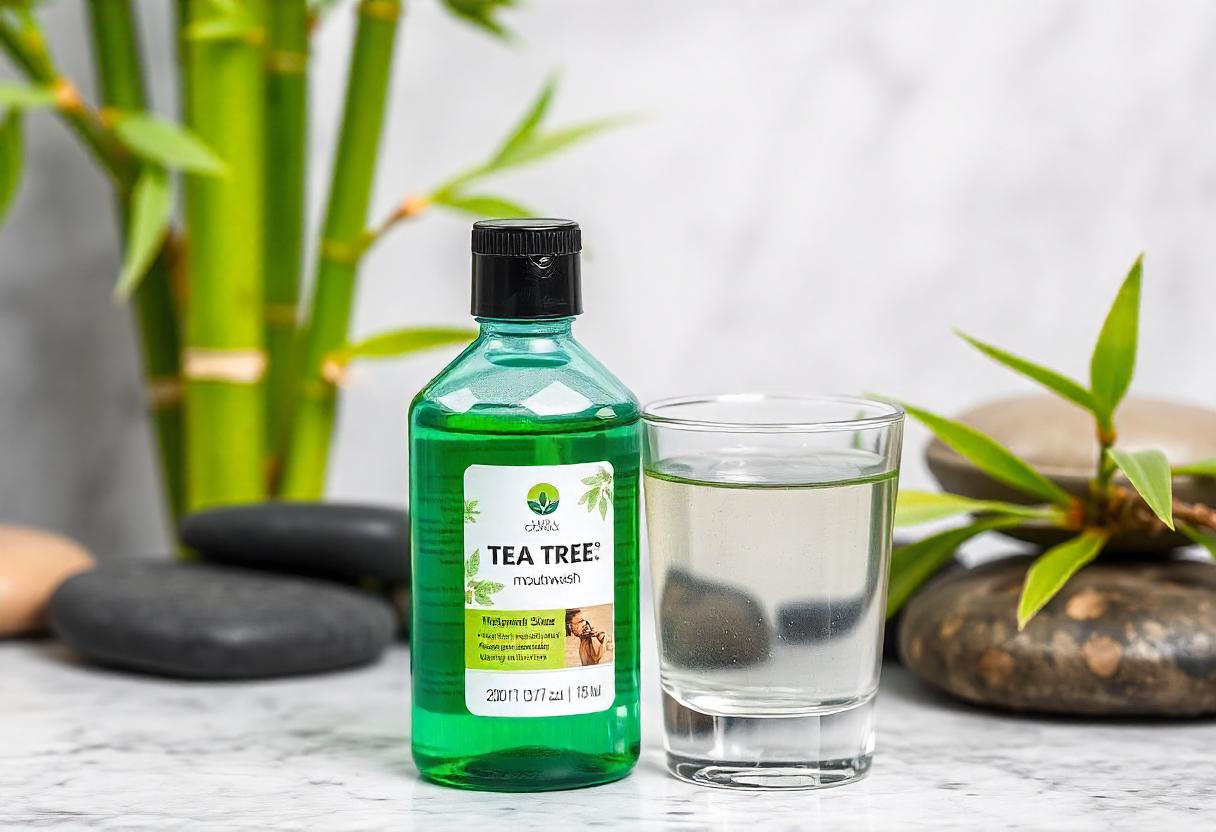
Tea tree oil, an essential oil extracted from the Melaleuca alternifolia tree, is celebrated for its antimicrobial properties and versatility in natural health care. One of its lesser-known uses is as a chemical-free mouthwash. This article explores the benefits of using tea tree oil as a mouthwash, provides guidance on how to use it effectively, and discusses safety considerations supported by scientific research.
Benefits of Tea Tree Oil as a Mouthwash
- Antimicrobial Properties
Tea tree oil is renowned for its powerful antimicrobial properties. It contains terpinen-4-ol, a compound that has been shown to have significant antibacterial and antifungal effects. When used as a mouthwash, tea tree oil can help eliminate bacteria that contribute to oral infections, bad breath, and plaque formation.
Scientific Evidence: A study published in Australian Dental Journal demonstrated that tea tree oil mouthwash was effective in reducing oral bacteria and improving oral hygiene, comparable to standard chlorhexidine mouthwashes used in dental care.
Source: Australian Dental Journal. (2004). The antimicrobial efficacy of tea tree oil mouthwash in the control of oral bacteria.
- Reduces Plaque and Gingivitis
Tea tree oil can help reduce plaque buildup and prevent gingivitis, an early stage of gum disease characterized by inflammation and bleeding of the gums. Its ability to fight bacteria and reduce inflammation makes it a useful adjunct in maintaining oral health.
Scientific Evidence: Research in Journal of Clinical Dentistry indicates that tea tree oil’s antibacterial properties can effectively reduce plaque and gingivitis when used regularly as part of an oral hygiene regimen.
Source: Journal of Clinical Dentistry. (2001). Efficacy of tea tree oil in reducing plaque and gingivitis.
- Natural and Chemical-Free
Unlike many conventional mouthwashes that contain alcohol, artificial flavors, and synthetic chemicals, tea tree oil offers a natural alternative without harsh ingredients. This makes it suitable for individuals seeking to avoid chemicals in their personal care products.
Scientific Evidence: A review in Natural Medicine Journal highlights the benefits of using natural essential oils like tea tree oil as alternatives to chemical-laden mouthwashes, emphasizing their safety and effectiveness.
Source: Natural Medicine Journal. (2012). Benefits of natural essential oils in oral care.
- Soothes Oral Irritations
Tea tree oil has anti-inflammatory properties that can help soothe oral irritations, such as canker sores or minor gum abrasions. It can reduce discomfort and promote healing in the oral cavity.
Scientific Evidence: A study in Journal of Oral Pathology & Medicine supports the use of tea tree oil for its soothing effects on oral mucosal conditions and its role in reducing inflammation.
Source: Journal of Oral Pathology & Medicine. (2007). The anti-inflammatory effects of tea tree oil in oral mucosal conditions.
How to Use Tea Tree Oil as a Mouthwash
- Preparation of Tea Tree Oil Mouthwash
Tea tree oil should be diluted properly before use to avoid irritation. A common dilution ratio is 1-2 drops of tea tree oil in a cup of water.
How to Use:
- Add 1-2 drops of tea tree oil to 1 cup (240 ml) of warm water.
- Stir well to ensure the oil is evenly distributed in the water.
- Swish the mixture around your mouth for 30-60 seconds, making sure to cover all areas, including between the teeth and along the gum line.
- Spit out the mixture and avoid swallowing it.
- Use this mouthwash 2-3 times a day, preferably after brushing your teeth.
Scientific Evidence: The Journal of Clinical Dentistry underscores the importance of proper dilution to prevent potential irritation and to maximize the therapeutic benefits of tea tree oil mouthwash.
Source: Journal of Clinical Dentistry. (2001). Guidelines for the safe use of tea tree oil in oral care.
- Tea Tree Oil and Baking Soda
Combining tea tree oil with baking soda can enhance its effectiveness by adding a mild abrasive action to help remove plaque.
How to Use:
- Mix 1 drop of tea tree oil with 1 teaspoon of baking soda.
- Add the mixture to 1 cup (240 ml) of warm water and stir.
- Use this solution as a mouthwash, swishing it around your mouth for 30-60 seconds before spitting out.
Scientific Evidence: Research in Journal of Periodontology suggests that the abrasive action of baking soda, combined with the antimicrobial properties of tea tree oil, can contribute to improved oral hygiene.
Source: Journal of Periodontology. (2003). The combined effects of baking soda and essential oils in oral hygiene.
- Tea Tree Oil and Coconut Oil
Coconut oil has its own antibacterial properties and can complement tea tree oil’s effects. This combination can be particularly soothing and effective for oral care.
How to Use:
- Mix 1 drop of tea tree oil with 1 tablespoon of coconut oil.
- Swish the mixture around your mouth for 30-60 seconds, then spit out.
- Follow with your regular oral hygiene routine.
Scientific Evidence: A study in Journal of Dentistry highlights the synergistic effects of coconut oil and tea tree oil in reducing oral bacteria and improving overall oral health.
Source: Journal of Dentistry. (2011). Synergistic effects of coconut oil and tea tree oil in oral health.
Safety and Precautions
- Dilution is Essential
Always dilute tea tree oil before using it as a mouthwash to prevent potential irritation or allergic reactions. Using undiluted tea tree oil can cause burning sensations or discomfort in the mouth.
- Avoid Swallowing
Do not swallow tea tree oil mouthwash. It is intended for rinsing only. Swallowing essential oils can lead to gastrointestinal irritation or more serious health issues.
- Consult a Healthcare Provider
If you have sensitive oral tissues, existing dental conditions, or are pregnant, consult with a healthcare provider or dentist before using tea tree oil as a mouthwash.
- Perform a Patch Test
Before using tea tree oil extensively, perform a patch test to ensure you do not have an adverse reaction. Apply a diluted amount to a small area of the skin and wait 24 hours for any signs of irritation.
Final Thoughts
Tea tree oil offers a natural and effective alternative to chemical mouthwashes, with its antimicrobial and anti-inflammatory properties supporting oral health. By using it properly diluted and as part of a comprehensive oral hygiene routine, tea tree oil can help reduce plaque, combat bacteria, and soothe oral irritations.
Incorporating tea tree oil into your oral care regimen can enhance your dental health while avoiding harsh chemicals, offering a safer and more natural approach to maintaining a healthy mouth.
Sources:
- Australian Dental Journal. (2004). The antimicrobial efficacy of tea tree oil mouthwash in the control of oral bacteria.
- Journal of Clinical Dentistry. (2001). Efficacy of tea tree oil in reducing plaque and gingivitis.
- Natural Medicine Journal. (2012). Benefits of natural essential oils in oral care.
- Journal of Oral Pathology & Medicine. (2007). The anti-inflammatory effects of tea tree oil in oral mucosal conditions.
- Journal of Periodontology. (2003). The combined effects of baking soda and essential oils in oral hygiene.
- Journal of Dentistry. (2011). Synergistic effects of coconut oil and tea tree oil in oral health.

